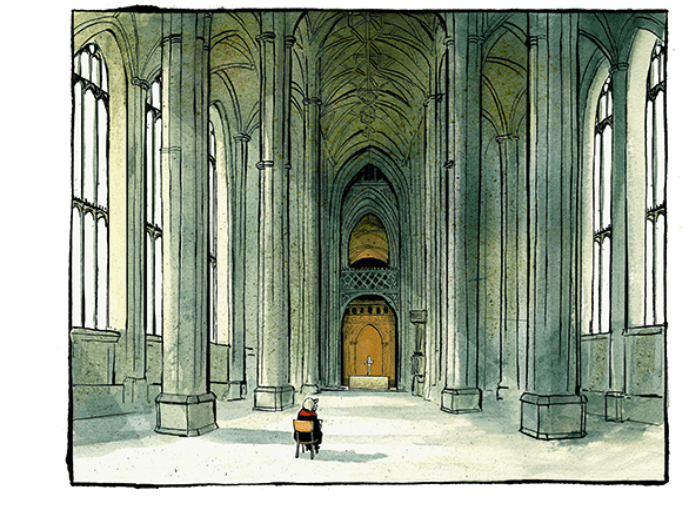There is no way that Anglican attendance falling below one million for the first time is good news for the Church of England. The figures, released today, put Sunday Anglican congregations in 2014 at 764,000, down 3 per cent on the previous year. When weekday and Saturday services are included, the figure is still only 980,000.
The Church often tries to distract from falling attendances and its apparently diminishing role in English society by pointing out how many people get married and attend carol services in its buildings, but it has to accept that those people don’t see any benefit in coming through church doors when it isn’t a high day or holiday. And that the rural church is in a terrible fix.
It may also have to accept that the bad news today may not show quite how bad things are for English church attendances. Not all Anglican churches are losing members. The ones that tend to grow and provide a good bulk of money for parish share are evangelical ones, and they may not linger for long in the CofE. Over the past year or so, an alternative Church of England has been growing in this country, with all the structures necessary for evangelical churches whose doctrine remains Anglican but who disagree with the Church hierarchy.
That alternative church, which I first wrote about in 2014, is called the Anglican Mission in England, and currently boasts over 30 churches in its list of supporters. Most of them remain Anglican churches, but some, like King’s Church, Guildford, are not part of the Church of England and rely only on the AMIE. A number of them, like St Helen’s, Bishopsgate, have very large congregations.
If, as many of their leaders believe will happen, they eventually decide to leave the official Church of England structures, then other conservative evangelical churches with similar congregations and growth strategies may follow. Given these churches are at the conservative end of evangelical, and have dug their heels in not just on the current issue of sexuality, but also on women bishops, many of their more liberal colleagues in the church may consider their departure good riddance. But they will also need to concede that it may mean that future CofE attendance figures look even worse.
PS As Damian Thompson pointed out recently, if you extent recent trends for British Christianity, the future looks very grim indeed….
[datawrapper chart=”http://static.spectator.co.uk/CBbHg/index.html”]







Comments